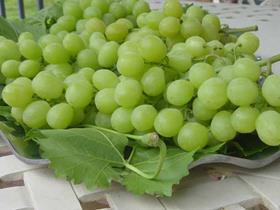
South African grape growers and exporters have been frustrated by Chinese import protocols, saying they have no chance of developing their long-term business in the market unless they are changed.
The main obstacles relate to the requirements of a cold sterilisation programme, which stipulates grapes have to be treated for 22 days. Growers claim the protocol is too harsh to deliver the high-quality grapes Chinese consumers crave.
Growers and exporters recently met with South African industry body SATI in Cape Town to discuss the experiences of the first season in which most of the South African table grapes destined for China entered the country through the green channel.
It is reported that some 1.7m cartons were exported this way but exporters and their customers were unhappy with the condition and quality on arrival.
“It is a huge problem if we want to build a long term future in China,” says Core’s Nico van Staden.
“We need to engage with the Chinese authorities to change this protocol but I am not sure whether we have much success.”
Goodbye to the grey channel
The various South African fruit sectors have been frustrated for many years with the slow progress of getting or improving access to China.
The initial breakthrough came when South Africa agreed to a protocol for citrus some years ago, which almost immediately had to be renegotiated because it was found to be unworkable.
The grape protocol was next on the list, but until last year exporters continued to use the grey channel because it was an easier, yet more costly, option.
The grey channel has now effectively been shut to grape growers.
“It is simply too risky and the future lies in official entry via the protocol channel,” says Van Staden.
Cultivar challenges
Another challenge South African growers and exporters face is improving their cultivar range to meet Chinese market requirements.
“As we plan to introduce new red and black seeded cultivars we constantly encounter marketing restrictions of the best new varieties by those who own the cultivars,” says Bernadette van Tiddens of Pitto.
Van Tiddens said Pitto had hoped to plant some of Sheehan’s new varieties, suited to the Chinese market, but the owners of the company are not prepared to accept the marketing restrictions associated with them.



